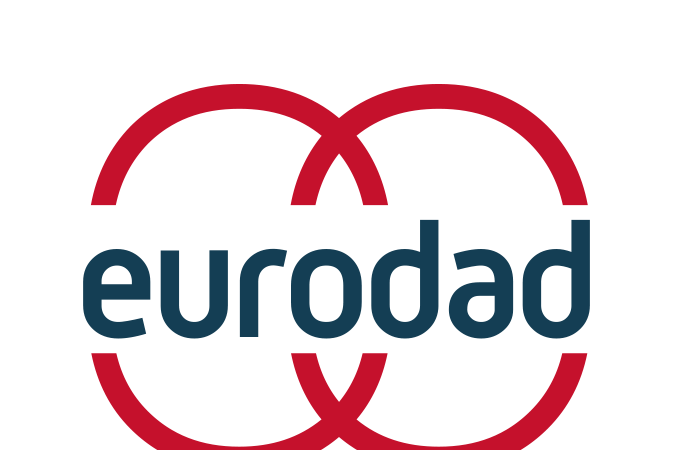An historic opportunity missed: In the midst of a development crisis gripping most of the world, the IMF and World Bank fail to provide a response

Top story
An historic opportunity missed: In the midst of a development crisis gripping most of the world, the IMF and World Bank fail to provide a response
.jpg)
The IMF and World Bank closed last week’s historic Annual Meetings in Marrakech – the first in Africa for 50 years – without delivering a response that matches the urgency of the moment.
Read more about the IMF/World Bank Annual meetings in the dedicated section below
News
African countries pave the way towards a UN Tax Convention – time for OECD countries to step up
On behalf of the Africa Group at the United Nations, Nigeria has tabled a draft resolution calling for the negotiation of a comprehensive UN Convention on Tax. The proposal was put forward at the 2nd Committee of the UN General Assembly and follows up on a landmark decision taken by consensus at the end of 2022, in which all governments agreed to start an intergovernmental UN Tax Process.
Global south CSOs demand justice and a change to the rules on debt and financial architecture
More than 70 experts and activists from civil society organisations, social movements, and networks across the globe, have issued an output document following a meeting in Bogota, Colombia convened and led by the Global South. The aim is to highlight a Southern perspective in defining the challenges related to debt and the financial architecture, and in determining solutions that must be guided by the needs and voices of those most affected: the peoples of the Global South.
Read the statement in English or Spanish
Momentum building to realign economic policies with human rights
by Human Rights Watch, Bretton Woods Project, Center for Economic and Social Rights, and Eurodad
This joint statement highlights the need to reform the current global economic order and put human rights at its center.
IMF/World Bank Annual Meetings
The worst ever global debt crisis – New data from Debt Service Watch
This briefing, launched during the Annual Meetings, shows that for 139 borrowers from the World Bank, debt service is above the levels reached in the HIPC and Latin American debt crises. It equals their total spending on education, health, social protection and climate adaptation combined, and exceeds this spending by half in Africa.
Read the briefing in English, French or Spanish
Care about the climate? Here are 5 reasons you should care about debt
by Debt Justice

This video explains why you can’t tackle the climate crisis without solving the debt crisis.
Marrakesh declaration to end austerity
More than 300 CSOs and academics from all over the world calling on governments, Ministries of Finance and International Financial Institutions to immediately stop harmful public budget cuts in essential areas like education, health and social protection, and halt damaging reforms such as the privatisation of public services and social security rights, which are exacerbating gender inequality.
Read the statement (multiple language versions available)
Fifty Years of Failure: The IMF, Debt and Austerity in Africa
by ActionAid
Based on new research and personal testimonies from across 10 African countries, this report documents how the IMF imposes austerity policies, undermining health, education and wider development across the continent.
Understanding IMF debt sustainability analyses: A toolkit for CSOs to critically engage with the IMF
by Kristina Rehbein (Erlassjahr) for Friedrich-Ebert-Stiftung MENA
This toolkit provides guidance on how to read a debt sustainability analysis and understand its tools, in order to critically engage with the IMF and government representatives that negotiate with the IMF about a financing program.
Comic book: “The Power of the 99% to stop corporate capture and debt”
by ESCR-Net – International Network for Economic, Social and Cultural Rights
This comic book, launched during the Annual Meetings, invites readers to learn about the global debt crisis and the phenomenon of corporate capture as a driving factor.
Read the book in English, Arabic, French or Spanish
Reports
A feminist social contract rooted in fiscal justice – An outline of eight feminist economics alternatives for intersectional justice
by Bhumika Muchhala (Third World Network)
In light of the baleful impacts of gendered austerity, this paper puts forward a set of strategies spanning policy and practice – from progressive taxation to social movement building – aimed at advancing gender-equitable fiscal justice.
AidWatch 2023 report
by Concord Europe
This report reveals critical issues in the allocation and reporting of Official Development Assistance (ODA). The report scrutinises the European Union (EU) and its Member States ODA efforts, presenting a stark contrast between reported figures and the reality of where the aid is truly directed.
Useful resources
From the frontlines to the center: Southeast Asia’s climate emergency and the imperative to decolonise climate finance
by Reality of Aid Network
The urban poor, rural and coastal communities of Southeast Asia are exposed to the threats of climate change, such as extreme weather events and rising sea levels. In this context, Southeast Asia critically needs resources in order to adapt and mitigate the impacts of the climate emergency to adequately save people’s lives, ensure livelihoods, alleviate poverty and conserve the environment.
Read the article in English or German (via Südostasien)
Events
24 October | Financialisation of social policies, agriculture, gender and climate: Demystifying market-based solutions
by Latindadd
During this webinar panellists will discuss financialisation, a process that involves the incorporation of the private sector in the offer of services that should be public: the so-called “financial inclusion” that indebts households, the privatisation of pension funds, the implementation of public-private alliances, the monetisation of natural resources and the use of false solutions such as market mechanisms. These are some of the strategies through which private capital and its profitability objectives take precedence over the role of the state in guaranteeing human rights and the rights of nature. Interpretation in Spanish, English and Portuguese will be available.
25 October | How the DAC rules are changing and why you should care
by Development Initiatives and Eurodad
This event will help CSOs and other organisations by providing an overview of the changes made in the ODA reporting of private sector instruments (PSIs) so that they can better understand the expected impact on quantity and quality in the years to come and, thus, the importance of monitoring PSI ODA in the future.
25 October | Economics seminar series: Sovereign debt and feminist political economy
by The Open University
Join the seminar to discover a number of key issues relevant to strengthening a feminist approach to the difficulties posed by sovereign over-indebtedness and global economic governance. The event includes the presentation of a collaborative book on feminism and sovereign debt, edited by Juan Pablo Bohoslavsky (CONICET) and Mariana Rulli (UNRN) and featuring a chapter written by Leia Achampong and Iolanda Fresnillo (both Eurodad).
25 October | Geneva, Switzerland | Development2030 and AidEx Conference: Mobilising private capital for the SDGs – myth or reality?
Eurodad’s Maria Jose Romero will take part in this annual gathering of development experts and practitioners. She will participate in an expert discussion to unpack the implications of the current push for private capital mobilisation in development.
21 November | #SaveTheDate | Webinar: Blended finance for climate action – Risks and opportunities of an emerging agenda
by ActionAid and Eurodad
The urgency and scale of the climate crisis has led to an agenda focused on mobilising private finance for climate. Blended finance – a combination of concessional finance with other public or private resources – is increasingly portrayed as a key tool to achieve that goal, at a time when Global North countries have failed to meet their climate finance promises. Is this solution working? Is it reaching those who need resources the most?
This webinar will cover the key features of this agenda, and explore the challenges and opportunities that this approach presents. During the event, a briefing on the same topic will be launched.
Registrations opening soon
 |
This newsletter has been produced with co-funding from the European Union, Bread for the World and Norad. The contents of this publication are the sole responsibility of Eurodad and can under no circumstances be regarded as reflecting the position of the funders. |






